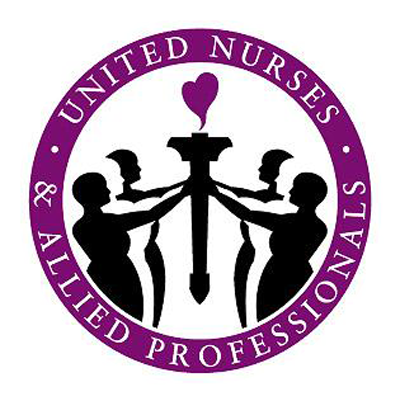Single Payer Health Care / Health Care is a Human Right
S-88 and H-100 propose to establish “universal access to essential health care services in Vermont through a publicly financed, integrated, regional health care delivery system; provide mechanism for cost containment in the system; and provide a framework, schedule and process to achieve that goal.”
The bill creates a new plan, VermontCare, to pay for essential healthcare services in Vermont. It would utilize the existing network of healthcare providers (doctors & hospitals), but would eliminate private insurance for essential healthcare services and replace the current multiple payers with a single public fund financed by a system of broad-based taxes. Insurance premiums (and, therefore, deductibles) and out-of-pocket payments would be eliminated. All residents of Vermont would be eligible for VermontCare, simply by virtue of residence.
The bill would merge three existing government divisions into a new department, Health Care Administration, and create a new three-member board, the Vermont Health Care Board, each with specific mandates, guidelines and timelines for designing, implementing and managing the services included in VermontCare. (The Board would propose [to the general assembly] a package of essential health services to be covered by VermontCare and subsequently act in a quasi-judicial capacity to hear complaints and amend established reimbursement rates. The Department of Health Care Administration would administer payments and establish a drug formulary, which would be used to negotiate discounts from manufacturers and establish uniform statewide prescription practices, along with several other administrative duties related to VermontCare.)
The bill also calls on the general assembly to create regional community health boards to assess, prioritize and define community health needs, as well as to develop budget recommendations and provide regional oversight and evaluation regarding the delivery of care in their regions. Under VermontCare, providers would be compensated based on best practices and healthcare outcomes rather than for individual services. Hospitals would negotiate annual “global” budgets instead of being paid for individual services.
For more information about the Health Care is a Human Right campaign, click here.
Vermont passes Universal Health Care legislation! Read more
“In Vermont, single-payer health care in a single state”Stateline, 12/14/10
End Mandatory Overtime!
In recent years, the unsafe practice of mandatory overtime has become familiar to most Vermonters, thanks to contract negotiations and public campaigns led by the UNAP.
At Copley Hospital, the UNAP has fought for and won important contractual safeguards that prohibit the use of mandatory overtime except in a true emergencies, while at Brattleboro Retreat, the hospital pays a steep financial penalty if it requires employees to work overtime.
Most health care workers, however, still have NO protection against the dangers of mandatory overtime.
The UNAP is continuing its fight against mandatory overtime this year by joining forces with other unions, as well as health care advocacy organizations, to press for legislation that would stop the dangerous practice of requiring health care workers to work up to 16 consecutive hours — often with no sleep and no prior notice.
You can help end mandatory overtime by contacting your legislators and urging them to support H-0268.
Safe Patient Handling
For years, we have been taught that the way to avoid musculoskeletal injuries is through proper body mechanics. And yet, health care workers lead the nation in work-related musculoskeletal disorders. This is no surprise, considering that nurses lift an estimated 1.8 tons per shift.
Studies show that between 38 – 50% of nurses and other health care workers will suffer a work-related back injury during their career – and 44% of these workers will be unable to return to their pre-injury position. Manual lifting of patients has been condemned for years by governments and nursing organizations in other countries.
The good news is that there are realistic alternatives to manual lifting. Mechanical lifting devices dramatically reduce injuries (to employees and patients), Workers’ Compensation costs, and absenteeism. Creating a safer workplace will also improve the recruitment and retention of RNs and other health care workers.
The UNAP is committed to passing legislation (S-0080 and H-0238) that will require hospitals to develop and implement “no lift” policies in our workplaces.
Paid Sick Time
Did you know that 106,000 Vermonters do not receive paid sick time when they are sick, including 57% of Vermont public-sector employees?
Lowest wage workers are the hardest hit. 78% of low-wage workers in the U.S. do not have paid sick time. 75% of women living in poverty do not get paid when they miss work to care for a sick child.
H-382 would guarantee that all Vermont workers can earn paid sick days. As outlined in the bill, employees could use their paid sick time: to recover from or receive treatment for an illness or injury; to care for a sick family member; to obtain diagnostic, routine, preventive or therapeutic health care; and to take necessary steps for their safety as a result of sexual abuse, domestic violence or stalking.
Guaranteed paid sick days make sense for workers and their families, employers, and the public health. Please join the UNAP in supporting this important legislation.
Support One Vermont
One Vermont is a broad coalition of individuals, organizations, businesses, and unions all joining together to keep Vermont working for all Vermonters. A fundamental principle of One Vermont is “Equitable and sustainable fiscal policies that promote long term prosperity for Vermont and security for all Vermonters.” UNAP is committed to working with One Vermont coalition partners to have a more balanced and fair approach to our current budget crisis.
